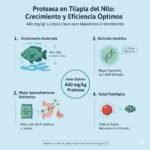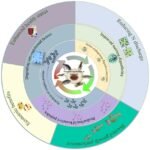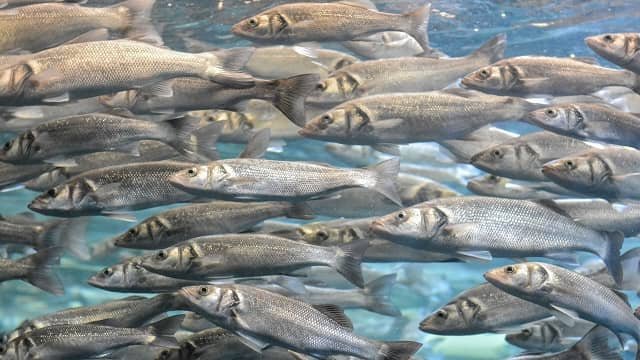
Shrimp, particularly Pacific White Shrimp (Litopenaeus vannamei), plays a significant role in this industry. Traditionally, shrimp feed relies heavily on fish meal, a valuable but increasingly scarce and expensive ingredient.
A new study conducted by scientists from the University of São Paulo and AquaHana LLC has revealed a promising strategy for enhancing shrimp growth and nutrient absorption. Researchers studied the effects of adding specific enzymes, phytase and protease, to fish meal-free diets for Pacific White Shrimp juveniles (Litopenaeus vannamei).
Addressing the fish meal challenge
The aquaculture industry is constantly seeking ways to reduce its reliance on fish meal, a traditional protein source that is becoming increasingly costly and unsustainable. This study focused on fish meal-free diets that also had a limited phosphorus content, an essential nutrient for shrimp.
Exogenous enzymes to the rescue
Imagine small biological tools that help shrimp digest their food more efficiently. These are exogenous enzymes, added to the feed and not naturally produced by the shrimp themselves.
Researchers observed how supplementing these diets with phytase and protease could affect shrimp. Phytase is an enzyme that helps break down phytate, a molecule in plant-based ingredients that can trap phosphorus, making it unavailable to shrimp. Protease, on the other hand, aids in protein digestion.
The science behind the study
Researchers conducted two feeding trials with juvenile shrimp, focusing on fish meal-free and phosphorus-limited diets, a crucial nutrient for growth. They tested the effects of:
- Phytase: An enzyme that breaks down phytate, a molecule in plant-based ingredients that traps phosphorus, making it unavailable to shrimp.
- Protease: An enzyme that breaks down proteins, potentially aiding digestion.
Shrimp were fed diets with varying levels of these enzymes and monitored for:
- Growth performance: How much weight they gained over time.
- Nutrient digestibility: How efficiently they absorbed nutrients from their food.
Promising findings for phytase
The study revealed significant benefits of supplementing with phytase:
- Improved growth performance: Shrimp fed diets with specific levels of phytase (2000 FTU/kg and higher) grew significantly faster than those that did not have them.
- Enhanced phosphorus digestibility: Phytase helped shrimp unlock phosphorus trapped in their plant-based feed, leading to better nutrient utilization.
Protease requires further exploration
Interestingly, the study did not observe any clear positive effects from adding protease to shrimp diets under these specific conditions. Further research is needed to understand the potential role of protease in shrimp aquaculture.
Stay Always Informed
Join our communities to instantly receive the most important news, reports, and analysis from the aquaculture industry.
Optimizing shrimp aquaculture
This study highlights the potential of phytase as a valuable tool for shrimp producers. By improving nutrient utilization and promoting growth, phytase supplementation could contribute to a more sustainable and productive shrimp aquaculture industry.
Conclusions
This study underscores the potential of phytase as a valuable tool for shrimp producers. By enhancing nutrient utilization and promoting optimal growth, phytase supplementation can contribute to:
- Reducing dependence on fish meal: This can alleviate pressure on wild fish populations and promote sustainable aquaculture practices.
- More efficient feed conversion: Shrimp producers can potentially achieve greater growth from the feed they provide.
- Environmentally friendly shrimp production: Better nutrient utilization can lead to reduced waste in aquaculture systems.
Further research is crucial to explore the full potential of enzymes in shrimp diets and optimize their use for different shrimp species and farming conditions. However, this study offers promising initial results for the use of phytase as a sustainable and effective approach in shrimp aquaculture.
Contact
Rafael Coelho
Aquaculture Laboratory (LAM), Oceanographic Institute, University of São Paulo, Ubatuba, Brazil
Email: rafael.tsuyoshi.coelho@usp.br
Reference
Coelho, R., Tacon, A.G.J. & Lemos, D. Effect of dietary phytase and protease supplementation on the growth performance and apparent nutrient digestibility in juvenile Pacific white shrimp (Litopenaeus vannamei) fed fish meal–free and phosphorus limiting diets. Aquacult Int (2024). https://doi.org/10.1007/s10499-024-01455-x
Editor at the digital magazine AquaHoy. He holds a degree in Aquaculture Biology from the National University of Santa (UNS) and a Master’s degree in Science and Innovation Management from the Polytechnic University of Valencia, with postgraduate diplomas in Business Innovation and Innovation Management. He possesses extensive experience in the aquaculture and fisheries sector, having led the Fisheries Innovation Unit of the National Program for Innovation in Fisheries and Aquaculture (PNIPA). He has served as a senior consultant in technology watch, an innovation project formulator and advisor, and a lecturer at UNS. He is a member of the Peruvian College of Biologists and was recognized by the World Aquaculture Society (WAS) in 2016 for his contribution to aquaculture.







